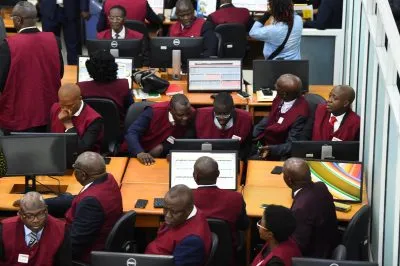IMF staff and the Ghanaian authorities reached agreement on Monday to implement various economic reforms under a three-year arrangement of around $3bn, as the country battles with 40% inflation, a $6bn debt pile and a 50% decline in its cedi currency.
The loan – taken under the Extended Credit Facility in the form of IMF Special Drawing Rights (SDRs) targets macro-economic reforms to restore stability as the West African faces its worst economic crisis in years.
The IMF bailout comes weeks after the government put forward a 2023 budget plan aimed at narrowing its large fiscal deficit, which led to Moody’s downgrading the country’s sovereign credit rating to Ca.
Some of the reforms proposed by the IMF to restructure Ghana’s declining economy include bolstering tax compliance, strengthening public expenditure commitment controls, improving fiscal transparency, improving the management of public enterprises, and tackling structural challenges in the energy and cocoa sectors.
The IMF’s fiscal strategy “relies on frontloaded measures to increase domestic resource mobilisation and streamline expenditure,” said Stéphane Roudet, IMF mission chief for Ghana, who visited Accra for 10 days to discuss the programme with Ghanaian leaders.
“Structural reforms will be introduced to underpin the fiscal strategy and ensure a durable consolidation. These include developing a medium-term plan to generate additional revenue and advancing reforms to bolster tax compliance. This will help create space for growth-enhancing measures and social spending. Efforts will also be made to strengthen public expenditure commitment controls, improve fiscal transparency (including the reporting and monitoring of arrears), improve the management of public enterprises, and tackle structural challenges in the energy and cocoa sectors. The authorities are also committed to further bolstering governance and accountability.”
“In addition, the authorities have committed to strengthening social safety nets, including reinforcing the existing targeted cash-transfer program for vulnerable households and improving the coverage and efficiency of social spending,” he said.
The IMF said the bailout would be subject to approval by its Executive Board.
“To support the objective of restoring public debt sustainability, the authorities have announced a comprehensive debt restructuring. Sufficient assurances and progress on this front will be needed before the proposed Fund-supported program can be presented to the IMF Executive Board for approval,” said Stéphane Roudet.
Debt Sustainability Assessment to come
In a Q&A, the IMF also said that a Debt Sustainability Assessment (DSA), conducted jointly by the IMF and World Bank, is expected to determine in the near future whether the government is able to meet all of its current and future payment obligations.
In its 2023 budget plan proposed to parliament on the 24 November, the government asked for the restructuring of both local and foreign currency debts that will likely incur substantial losses for investors. In its 29 November downgrade decision, Moody’s said that the plab had prompted the downgrade.
“The Ca rating reflects Moody’s expectation that private creditors will likely incur substantial losses in the restructuring of both local and foreign currencies debts planned by the government as part of its 2023 budget proposed to Parliament on 24 November 2022. Given Ghana’s high government debt burden and the debt structure, it is likely there will be substantial losses on both categories of debt in order for the government to meaningfully improve debt sustainability.”
Speaking on the day of the budget announcement, Ghana’s finance minister, Kenneth Ofori-Atta, asked international bondholders to accept a 30% haircut on principal payments in 2023. On 6 December he said asked investors to exchange around $9bn in domestic debt for new bonds maturing between 2027 and 2037, which could result in zero interest coupons in the first year, and then 5% and 10% in the successive years to follow.
Want to continue reading? Subscribe today.
You've read all your free articles for this month! Subscribe now to enjoy full access to our content.
Digital Monthly
£8.00 / month
Receive full unlimited access to our articles, opinions, podcasts and more.
Digital Yearly
£70.00 / year
Our best value offer - save £26 and gain access to all of our digital content for an entire year!
 Sign in with Google
Sign in with Google 



